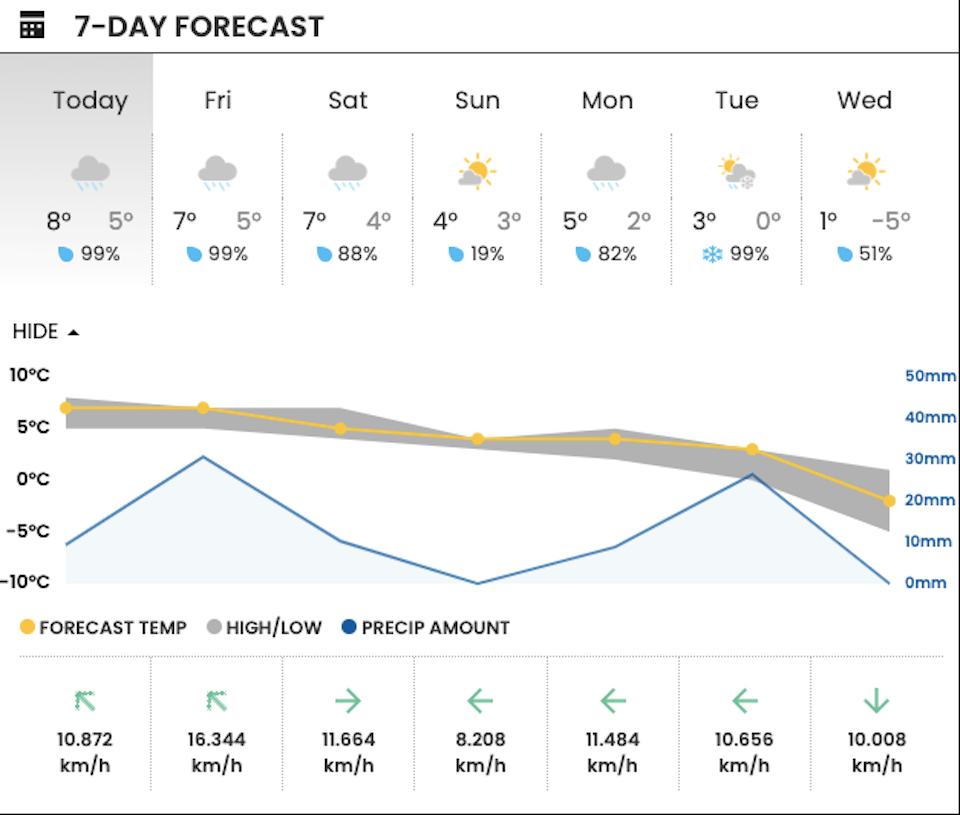B.C. broke numerous warm weather records to round out the final month of 2023 -- but temperatures are expected to plunge starting next week.
The Metro Â鶹´«Ã½Ó³»weather forecast includes a shift to colder temperatures starting on Sunday, Jan. 7.
V.I.A.'s Downtown Centre Weatherhood station shows temperatures dropping to 3 C overnight, but other places across the Lower Mainland, such as Richmond City Centre and Port Coquitlam, may see temperatures drop well below the freezing mark. There are also a couple of possibilities for snowfall at the start of next week.
Environment Canada meteorologist Armel Castellan told V.I.A. that Metro Â鶹´«Ã½Ó³»had its warmest December on record since 1939, with temperatures averaging a high of 7 C, which is 3.4 C above the seasonal average of 3.6 C.
Temperatures climbed into the teens after the winter solstice, with daytime highs of 12 C and 13 C. In one case, the overnight low only dropped down to 9.2 C.
Thanks to the balmy winter weather, spring flowers have bloomed across the city, including the popular daffodils along English Bay.
But the fresh blooms aren't expected to survive the upcoming cold -- at least the part of the flower that is exposed.
Metro Â鶹´«Ã½Ó³»weather forecast to see frigid shift
While they might withstand temperatures falling close to freezing overnight on Sunday, significantly colder temperatures are expected starting next Wednesday or Thursday.
Castellan says there is a possibility temperatures could fall as low as -6 C or -7 C as modified Arctic air makes its way into the Lower Mainland. There is also the potential for snow, although the models aren't indicating that a great deal of humidity will accompany the cold front.
The wintry weather isn't expected to stick around long. Environment Canada is still calling for Metro Vancouver to see above-average temperatures in January, February, and March due to a strong El Niño.
In addition to being warm, last year was also dry. Abbotsford only received 67 per cent of its average precipitation amount while Â鶹´«Ã½Ó³»saw 73.5 per cent.
"It is very likely the snowpack will be much less than normal," Castellan notes, adding that this could produce dangerous, parched conditions heading into the next wildfire season.




